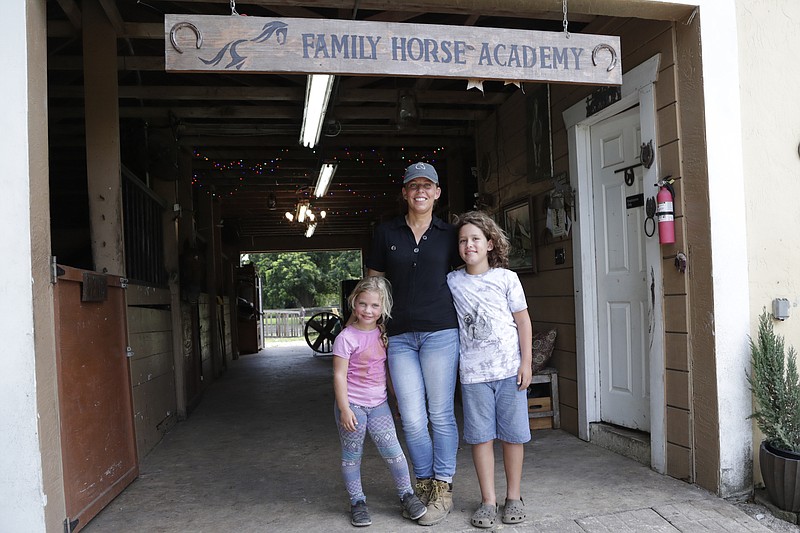"The coronavirus caused by far the biggest disruption in the history of American education," Meira Levinson and Daniel Markovits wrote in The Atlantic last year.
Things have not reverted back to normal as COVID has gradually lost its grip on American life. Today's teachers and students are living with a set of altered realities, and they may be for the rest of their lives:
› Shrinking enrollments. In the first full academic year of the pandemic, K-12 public school enrollment fell by 1.1 million students and fell by about an additional 130,000 students the following fall. New Stanford-led research finds that 26% of that decline was caused by students switching to home-schooling and 14% by students leaving for private schools. Another 34% of the decline is hard to track, but some students were probably going truant, doing unregistered home-schooling or simply opting out of kindergarten. (A declining school-age population explains the rest.) In the years ahead, enrollments, and the funding streams that go with them, will most likely decline further as birthrates fall.
› Academic regression. Since the National Assessment of Educational Progress was first administered in the 1970s, scores have usually risen or held steady. But two decades' worth of math and reading gains were more or less erased for 9-year-olds during the pandemic. Declining academic skills will have long-term consequences.
› Rising absenteeism. During the pandemic, students got in the habit of not going to school. Those habits have persisted. According to one preliminary estimate, 16 million students were chronically absent during the 2021-22 school year.
› Worsening discipline problems. More than 80% of public schools say the pandemic has led to worse student behavior and lower social and emotional development.
› Surging inequality. As Robin Lake and Travis Pillow write in a Brookings Institution article, "American students are experiencing a K-shaped recovery, in which gaps between the highest- and lowest-scoring students, already growing before the pandemic, are widening into chasms."
Parents, of course, are aware of these new realities and have begun to adjust their thinking. Historically, voters have trusted Democrats more on education. But, as Nat Malkus pointed out in National Affairs, by 2022, Republicans were as trusted as Democrats by voters, if not more so.
Parents are rethinking, but the nation's leaders seem blissfully unaware. Given the alarming statistics I've just cited, you would think that education would be one of the most talked-about subjects in America right now. You would think that President Joe Biden would be offering comprehensive plans to reform U.S. schooling. You would think efforts by governors and mayors to address these problems would be leading newscasts and emblazoned across magazine covers on a weekly basis.
But this is not happening. In his State of the Union address, Biden offered no ambitious plans to fix America's ailing schools. The Republican Party can't utter a complete sentence on the subject of school reform that doesn't contain the initials CRT. What we're seeing here is a complete absence of leadership.
This moment of disruption should be a moment of reinvention. It should be a moment when leaders rise up and say, "Let's get beyond stale debates over charters, vouchers, gender-neutral bathrooms and the like. We're going to rethink the nuts and bolts of how we teach in America."
The moment is ripe. COVID has left a lot of destruction in its wake. But just as the pandemic spurred people to find creative new approaches to the workplace, it has propelled people to expand creative approaches to schooling. Some teachers and parents, for example, developed "learning pods" or "micro-schools"-- smaller groups of students, sometimes across grade levels, who learn and socialize together.
Some innovators are working on "mastery-based learning." In normal school, the whole class studies a subject for a fixed period, then there's a test that serves as an autopsy on how well the students learned. In mastery-based learning, the feedback is more continual and steers each student to master the subject at his or her own pace.
Other schools are experimenting with 3,000-square-foot classroom areas where teams of teachers work with students in small groups or individually. Others are rethinking how teaching jobs are defined. "Having a superbly skilled early literacy instructor teach addition or watch students eat lunch simply because he's a second-grade teacher is a bizarre way to leverage talent," observes Frederick Hess of the American Enterprise Institute.
The pandemic reminded us how much we lose when teachers can't do their jobs in the way they want to do them. But there now has to be political leadership to shake up a calcified system and hurry the reinvention that has to happen.
The New York Times
